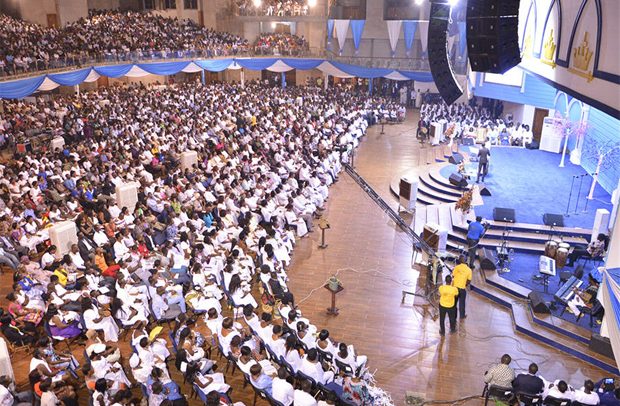The hopes of some charismatic churches for the lifting of the ban on public gatherings appear to have been dashed as President Akufo-Addo extended the ban to May 31st.
President Akufo-Addo delivered his ninth address to the nation last night, May 10, announcing the extension of the ban on public gatherings.
The churches had been pushing for the lifting of the ban prior to the President’s Sunday address, setting out guidelines for conducting church services in the likely event that the ban was lifted.
The bodies that presented the guidelines included the Christian Council, the National Association of Charismatic and Christian Churches, Ghana Catholic Bishops’ Conference.
However, some of the churches especially the orthodox ones were not in agreement with the lifting of the ban because of the dire consequences on their congregations.
It would be recalled that in March, President Akufo-Addo banned all public gatherings in response to coronavirus outbreak in the country.
“Impliedly, the suspension of religious gathering constitutes a form of lockdown, owing to the Church’s inability to congregate for communal worship,” the Christian bodies had said prior to the announcement of the extension.
But the President says the extension was in line with Executive Instrument 64.
He says “So, during this period, there will continue to be a ban on public gatherings, such as the holding of conferences, workshops, parties, nightclubs, drinking spots, beaches, festivals, political rallies, religious activities and sporting events.”
“All educational facilities, private and public, continue to remain closed,” he says.
“There is still a ban on funerals, other than private burials conducted with not more than 25 persons”, according to him.
The virus, the president noted is not a respecter of persons, and has wreaked its havoc on every country on the planet.
“We can defeat it if we continue to look out for one another, and remain each other’s keeper. We are fighting a common enemy, and it is imperative that we do not allow religious, ethnic or political differences to get in the way of certain victory.
“So, we cannot allow a few persons, who wish to use these differences to scuttle our collective fight, to succeed”, he emphasised.
By Melvin Tarlue

